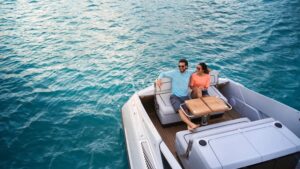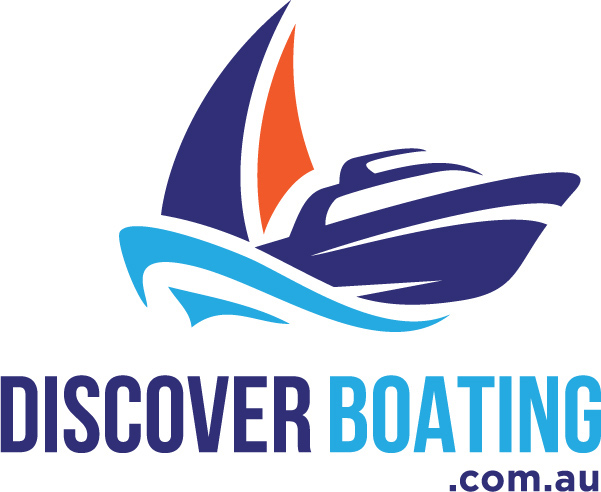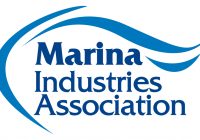According to Garmin, with so many new boaters that have eventuated as a result of COVID, “being a responsible boat owner does take a little bit of work — and that includes learning the lingo”. They say “Not only are you going to want to know what it means when someone says they need to hit the head, but it’s also an issue of safety. The more you know, the better prepared you are in the event of an accident — or to avoid one”.
With this, Garmin have release 100 terms they say you should know before taking your boat out for its next spin.

Abaft – Behind the boat, or toward the rear
Abeam – On either side of the boat
Aft – Back (or stern) of the boat
Aids to navigation – Artificial markers indicating safe or unsafe waters
AIS – Automatic identification system that allows you to identify any vessel in your immediate area that is broadcasting an AIS signal
All-round light – A light shining unbroken over the horizon at an arc of 360 degrees
Anchor light – A light that must be shown when anchored at night
Astern – Back of the boat
Autopilot – Self-steering devices that can steer your vessel on a preset course or heading
Aweigh – The position of an anchor when it is raised above the bottom
Bathymetry – The measurement of underwater depths, usually shown as contour lines and depth soundings
Batten down – Secure loose objects and hatches on the boat
Beam – Widest part of the boat
Bearing – The direction of an object, either shown on the chart as a true bearing or relative to the heading of the boat
Bight – The part of rope or line on which a knot is formed
Bilge – The interior of the hull below the floorboards
Bilge Pump – Clears standing water from the boat
Bitter end – Last part of the rope or chain
Boat hook – A tool used as a docking and undocking aid, usually with a blunt tip for pushing during undocking and a hook for docking
Boat switch – A panel used to control the vessel’s electrical functions
Boot top – The area between the water lines of a ship when fully loaded and when unloaded
Bow – Front of the boat
Bowline – A knot that forms a loop at the end of a line
Center console steer – Boat steered via a steering wheel located at the console at the center of the boat
Chart datum – The baseline of tidal height in tide tables
Chartplotter – A device that integrates GPS data with electronic navigational charts; most chartplotters also offer sonar support
Cleat – A fixture used to secure a boat to a dock
Cockpits – The area on a vessel where the main consoles are located
COLREGs – Collision regulations, or the laws that prevent collisions on the water
Come to – Point up closer to the wind
Currents – The horizontal movement of water
Docking light – Headlights on a boat that are meant to be used in close quarters
Draft – The minimum amount of water a boat needs to be able to float
DSP – Digital signal processing is the technology that is built into Fusion’s premium stereos that ensures optimised audio reproduction by minimising distortion, customising audio profiles based on specific speaker locations and protecting speakers from being overloaded with excess power
Ebb tide – When the water goes back away from the shore (opposite of rising tide)
EPIRB Emergency position indicating radio beacon
Fishfinder – A device that uses sonar waves to detect fish and other objects underwater
Flood tide – When water comes to the shore (rising tide)
Flybridge – An elevated open deck above the main bridge of a boat, usually equipped with duplicate vessel controls
Forward – Toward the direction of the bow
Four-cycle motor – Internal combustion engine in which the piston completes four separate strokes while turning the crankshaft
Freeboard – The distance from the waterline to the deck of the vessel
Galley – The cooking area of a vessel
Gib – A metal fitting that holds a member in place or presses two members together
Give-way – To slow down, stop or alter course to avoid the path of another boat
Go astern – To go backwards, or reverse engines
Gunwale – The top of each of the sides of the boat
Head – The toilet on a boat
Heave to – Steering into the wind
Helm – The area from which you steer the boat
Hull – The part of your boat that rides both in and on top of the water
Impeller – Part of the boat’s engine cooling system that pumps cold water into it to cool it down
Inboard motor – An engine enclosed within the hull of the boat
Knots – A unit of speed — one knot is one nautical mile per hour
Lanyard – A small line joining an object to the boat
Leads – Markers used in channels or bar entrances that indicate the middle of the channel
Lee shore The shore the wind is blowing toward
Leeward – The downwind side of the boat
Live sonar – Technology that allows you to see what’s happening around your boat in real time
Lower unit – Part of the outboard that takes the power and rotation from the engine and transfers them to the prop shaft and the propeller
Magnetic north – The direction in which all compass needles point
MFD – Multifunction display— typically a chartplotter at its core with support for multitudes of capabilities, like sonar, radar, autopilot, vessel data, audio control, etc.
Nautical chart – A type of map used by mariners that shows detailed water and shoreline features, such as depths, aids to navigation, obstructions and other features essential for navigation
Nautical mile – Historically defined as the meridian arc length corresponding to one minute of latitude; today the international nautical mile is defined as 1,852 metres (1.15 miles)
Navigation light – A light affixed to a boat that shows everyone the size and type of vessel, whether you’re underway or at anchor and what direction you’re travelling
On the quarter – Toward the stern
Open waters – Waters that are not enclosed
Outboard motor – Motor designed to be affixed to the outside of the hull on the transom
Outriggers – Long poles mounted to a boat that are swung out to the sides and are designed to hold fishing lines
PFD – A personal flotation device, like a life jacket
Planing – When a boat moves over the top of the water rather than through it
Port – Left (when facing the front of the boat)
Port-side – The left hand side of the boat on which a red navigational side light is displayed
PWC – Personal watercraft
Quartering sea – When water comes in on a boat’s quarter
Radar – Uses radio signal to detect objects and their positions
RMS power – The term used to describe the continuous power handling for a specific speaker or subwoofer; this is also used to describe the continuous power output of an amplifier
Scanning sonar – ClearVu/SideVu: Sonar that uses a thin, wide beam to provide clear images of structure and fish below the boat, as opposed to the cone-shaped beam used by traditional and CHIRP traditional sonar
Scope – The length of deployed anchor rode relative to the depth of the water
Side console steer – Boat steered via a steering wheel located at the console on the starboard side.
Sonar black box – A depth sounder that helps to find fish
Spring line – A pivot line used in docking, undocking or preventing the boat from moving while docked
Stand on – Continue with the same course and speed
Starboard – Right (when facing the front of the boat)
Starboard side – The right hand side of the boat, on which a green navigational side light is displayed
Stern – Back of the boat
Thruster – A transversal propulsion device built into, or mounted to, either the bow or stern of a ship or boat to make it more manoeuvrable
Tides – The rise and fall of water levels due to the attraction of the moon and sun
Tiller steer – Boat motor that is steered and throttled up/down via a lever/handle attached to the motor
Transducer – Turns electrical energy into a high frequency sound wave, serving as an antenna for a boat’s sonar system
Transom – Stern cross-section of the boat
Trim – Fore and aft balance of the boat
Trolling motor – Electric outboard motors that push or pull small boats
Two-cycle motor – Internal combustion engine that completes a power cycle with two strokes of the piston during one power cycle; this power cycle being completed in one revolution of the crankshaft
Underway – Another word for drifting; not at anchor
VHF – Very high frequency radio
Windlass – Anchor winch
Windward – The direction the wind is blowing from
Well done Garmin for creating their list.

Locally, a comprehensive list of boating terminology was developed by a number of prominent, well versed Aussies boaters for the BIA’s Discover Boating website. To view the list produced for the local community, visit the Discover Boating Glossary here.








